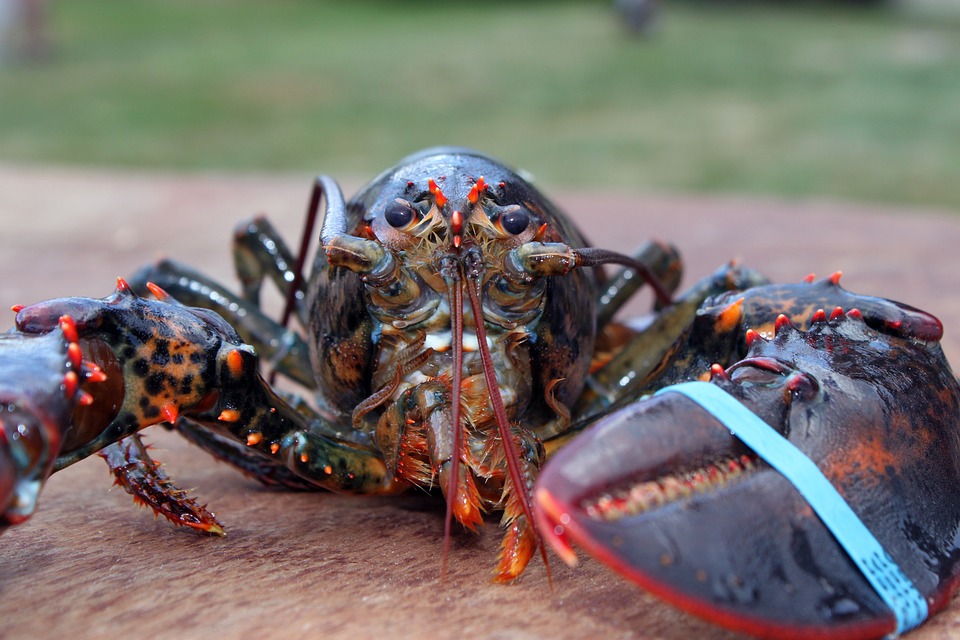Food
Lobster industry fears weaker shells, but evidence is mixed

U.S. lobster exports to Asian countries have increased exponentially this decade, and American shippers prefer lobsters with hard, sturdy shells to survive the long journey to places such as Beijing and Seoul. (Pixabay photo)
PORTLAND, Maine — More people outside the U.S. are enjoying the New England tradition of cracking open a freshly cooked American lobster, and that experience hinges on one thing — the lobster getting there alive.
That’s a looming problem, according to some members of the American lobster industry, who are concerned that lobsters’ shells are getting weaker. Scientific evidence about the issue paints a complicated picture.
U.S. lobster exports to Asian countries have increased exponentially this decade, and American shippers prefer lobsters with hard, sturdy shells to survive the long journey to places such as Beijing and Seoul.
But some members of U.S. industry have complained in recent years of poor shell quality among lobsters, most of which are plucked from the ocean off Canada and New England. They’ve raised concerns about warming ocean waters or acidification of the ocean having a negative effect on lobster shells.
Scientists said there is a correlation between warm temperatures and increased shell disease, but incidence of the disease is very low off Maine, the nation’s top lobster-producing state. Lobstermen also are catching lots of lobsters in the summer, when the creatures molt and are softer. Otherwise, there isn’t much hard evidence to suggest lobster shells are weakening, scientists said.
Here are some issues raised by the industry and what the science says:
——
WHY DOES THE INDUSTRY PREFER STRONG SHELLS?
There’s a lot of money at stake in getting lobsters to their destinations alive. American lobsters were worth a record $669.3 million at the docks in 2016, a year in which fishermen caught nearly 160 million pounds of the crustaceans.
While lobster meat is used in some processed products, such as lobster macaroni and cheese and lobster bisque, the whole live lobster is one of the biggest draws in the seafood world. It’s also the sought-after item in the booming Chinese market, which took a record of nearly 18 million pounds of U.S. lobster last year
A lobster with a harder, sturdier shell has a better chance to live through the one- to two-daylong journey.
Bill Bruns, operations manager for The Lobster Company of Arundel, Maine, said “finding and producing enough product that’s possible to ship” has become a problem.
——
WHAT DOES THE SCIENCE SAY?
Rick Wahle, a University of Maine zoologist who studies lobsters, said he hasn’t “heard anything that lobsters are necessarily getting softer.” But he and many other scientists said lobsters do face environmental challenges that could impact their ability to be shipped.
Wahle and others said the jury is still out on whether the increasing acidification of the ocean is one of those factors. There appear to be subtle effects on lobster larvae from acidification, but nothing to suggest something as dramatic as weaker shells, he said.
It’s possible that processors are just seeing more “soft shell” lobsters that have recently molted, which is a natural process necessary for them to grow, Wahle said.
A 2017 study that appeared in the scientific journal FACETS looked at the subject of the health of soft-shelled lobsters in southwestern Nova Scotia. It concluded that future research is needed “to evaluate the effects of long-term ecosystem change on shell-quality.”
——
DO WARMING OCEANS PLAY A ROLE?
Many lobsters live in the Gulf of Maine, which is warming faster than most of the world’s oceans. This poses many challenges to lobsters, including potential changes to their access to food and the abundance of predators.
It also raises concerns about epizootic shell disease, which disfigures lobsters to the point that they can’t be sold. The Maine Department of Marine Resources said researchers found the disease in about 1 per cent of lobsters last year after almost never finding it as recently as a decade or so ago.
Justin Ries, a marine biogeochemist with Northeastern University, said it’s important to monitor for the disease because it devastated the population off of southern New England.
——
WHAT IS THE INDUSTRY DOING?
Whether or not lobster shells really are getting weaker, the industry is working on ways to make them stronger.
One Portland firm, Ready Seafood Co., is partnering with the University of Maine to try to harden lobster shells for better shipping. Curt Brown, a marine biologist with the company, said Ready hopes to “expedite that natural process” with strategies such as manipulating the ion concentrations in the tanks where it stores lobsters.
The goal is to consistently improve a soft-shelled lobster to one that can survive an international flight over the span of a week, Brown said.





















